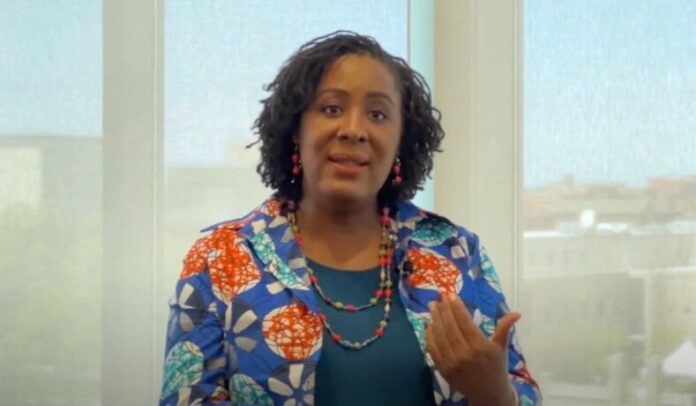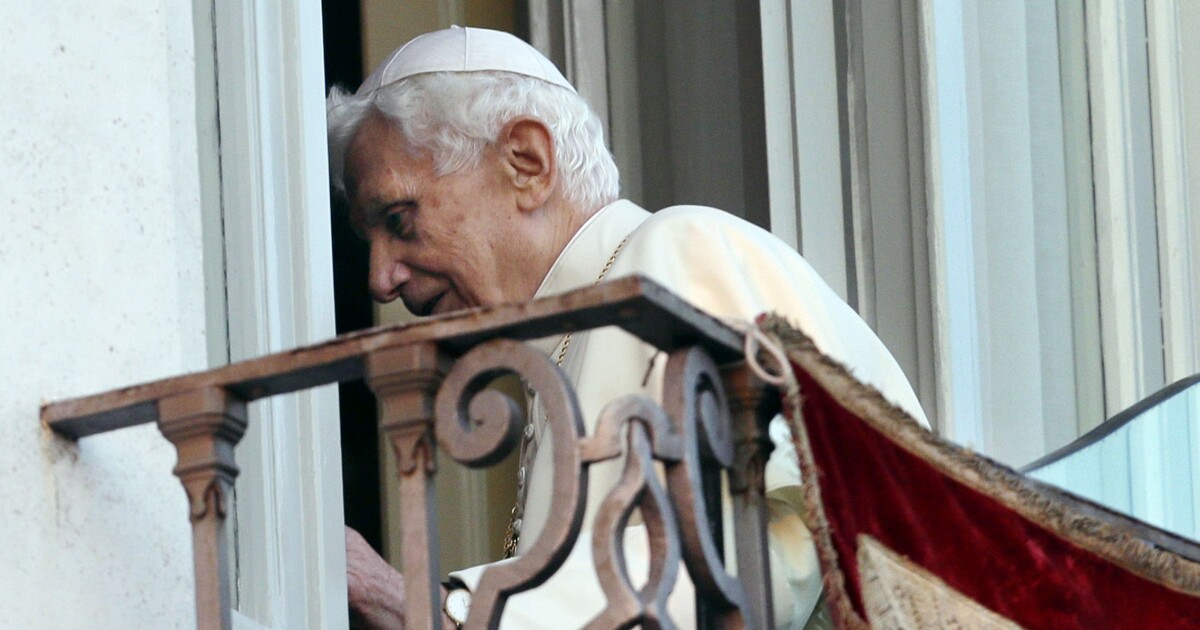
Uju Anya — a gay professor of second language acquisition and sociolinguistics at Carnegie Mellon University in Pittsburgh, Pennsylvania — was targeted with threats after her tweets about British Queen Elizabeth II. She wished the now-deceased monarch a painful and “excruciating” death and noted her role overseeing Britain’s oppressive, racist empire.
While she got support from many people in her birthplace, Nigeria, she faced more criticism after she expressed pride in her identity as a lesbian.
When news outlets reported the Queen was in failing health, Anya wrote (in a now-deleted tweet), “I heard the chief monarch of a thieving raping genocidal empire is finally dying. May her pain be excruciating.” The tweet violated Twitter’s hate speech policies and eventually resulted in the professor being locked out of her account temporarily.
After the queen died, Anya tweeted, “Queen Elizabeth was representative of the cult of white womanhood. There’s this notion that she was this little-old-lady grandma type with her little hats and her purses and little dogs and everything — as if she inhabited this place or this space in the imaginary, this public image, as someone who didn’t have a hand in the bloodshed of her Crown.”
While many mourned the queen’s passing — hailing the beloved matriarch as a symbol of national unity — many others saw her as the head of a historically racist and oppressive colonial empire. That empire extracted untold trillions of wealth from non-white countries using forced labor, imprisonment, torture, and genocide to oppress rebellions seeking independence from the crown.
“Even the crowns she wears are looted, and plundered from the lands they exploited and extracted from,” Anya added in a follow-up tweet. “The entire treasury is a legacy of thievery that was achieved by murder, by enslavement, and it didn’t stop after independence.”
Some of the queen’s crown jewels and many treasures in the British museums were taken from invaded lands. The Kohinoor diamond of India (set in one of her crowns) and The Great Star of Africa (set into her scepter) were royal jewels “gifted” to the monarchy from the countries Britain colonized. Critics say that the monarchy also possesses jewels taken from Iran, Afghanistan, and Pakistan.
When Queen Elizabeth II first ascended to the throne in 1953, the British Empire was collapsing. Nevertheless, it still contained over 70 colonized territories populated by hundreds of millions of royal subjects. As she wrapped herself in symbols of imperial monarchy, British security forces committed violence in her name. Government officials lied, covered it up, and downplayed its significance, even to her.
The queen was renowned for her incredible knowledge of foreign affairs, but it’s unclear how much she knew about the imperial violence. It’s unlikely that she remained completely ignorant to it. To this day, the British government has still not apologized or offered compensation for the centuries worth of free labor and resources it extracted from each of its colonies.
Billionaire Amazon owner Jeff Bezos specifically criticized Anya for her tweets. He wrote, “This is someone supposedly working to make the world better? I don’t think so. Wow.”
Anya replied, “Otoro gba gbue gi. [Nigerian for: May you pass away from excessive stools.] May everyone you and your merciless greed have harmed in this world remember you as fondly as I remember my colonizers.”
Otoro gba gbue gi.
May everyone you and your merciless greed have harmed in this world remember you as fondly as I remember my colonizers.
— Uju Anya (@UjuAnya) September 8, 2022
In a subsequent podcast interview, Anya said that her comments about the queen originated from her family’s hardships in Nigeria, a former British colony.
Nigeria declared independence from Britain in 1960. By 1967, Nigeria descended into civil war. During that war, Britain supplied firearms to the Nigerian government. That government used the guns to suppress Biafra separatists demanding autonomy for the Igbo people, a persecuted ethnic minority. The two-year civil war killed two million Nigerians, many from starvation, The New York Post wrote.
“Anya’s mother, who at the time had two young children and was pregnant with a third, fled the war zone with her in-laws as Nigerian soldiers were destroying villages,” the Post noted.
“My earliest memories were from living in a war-torn area, and rebuilding still hasn’t finished even today. Half of my family was slaughtered with guns and bombs that this queen sent to kill us,” she said.
In response to Bezos’ criticism, Anya criticized him for targeting her and said his retort encouraged death threats against her.
“Bezos and his dusty a** comes at me and literally puts a target on my back. He didn’t criticize my words. He criticized me,” Anya said.
She revealed, “I feel like my life is in danger.” People started creating fake social media profiles, pretending to be her and voicing support for various Nigerian political causes that she doesn’t actually support.
“It is urgent that the world knows that these people are trying to put me in harm’s way,” she said. “They are using me for political movements and messages that I do not align with, and they are seriously damaging me and my safety. This is going to be a huge problem for me… They are putting my life in danger.”
She said she has also been receiving hateful emails since posting her original tweets. However, she also expressed thanks to those who’ve been supportive and used the opportunity to highlight her gay identity.
“+234 Twitter, good morning. I give you special thanks for riding hardest for me. My Nigerian people, especially in and from Alaigbo, saw how much I love you and showed me love back. Together we shared our pain and taught the world our history. Thank you❤️ P.S. I am still a gay,” she wrote in a September 12 tweet.
+234 Twitter, good morning. I give you special thanks for riding hardest for me. My Nigerian people, especially in and from Alaigbo, saw how much I love you and showed me love back. Together we shared our pain and taught the world our history. Thank you❤️
P.S. I am still a gay.
— Uju Anya (@UjuAnya) September 13, 2022
Some people criticized her for mentioning her sexuality, calling it unnecessary or against African culture. However, anthropologists have seen evidence of homosexuality, same-sex unions, and gender variance across African tribes.
In an August 2020 tweet, Anya shared some of her own gay history. She wrote, “Before I publicly came out, I was married to a man who fathered both my children. I’ve loved and dated women all my adult life. Lived in Brazil with a woman before I met and fell in love with my ex-husband. Eventually, after realizing I was a lesbian, not bi, I left the marriage.”
In a September 13 follow-up tweet, she wrote, “My people, thank you🥰🥰🥰 All this love you send to me, I receive and return it. As you’re here saying me being gay doesn’t matter, or you won’t disown me, please, I beg you, can you find the same grace for the LGBTQ people in your lives? Can you please love us like we love you?”
My people, thank you🥰🥰🥰
All this love you send to me, I receive and return it. As you’re here saying me being gay doesn’t matter, or you won’t disown me, please, I beg you, can you find the same grace for the LGBTQ people in your lives? Can you please love us like we love you?— Uju Anya (@UjuAnya) September 13, 2022
She added, “If anyone expects me to express anything but disdain for the monarch who supervised a government that sponsored the genocide that massacred and displaced half my family and the consequences of which those alive today are still trying to overcome, you can keep wishing upon a star.”
After her comments went viral, Carnegie Mellon University released a statement saying, “We do not condone [her] offensive and objectionable messages… Free expression is core to the mission of higher education, however, the views she shared absolutely do not represent the values of the institution, nor the standards of discourse we seek to foster.”
Anya has since said that her teaching position at the university is not in danger.








